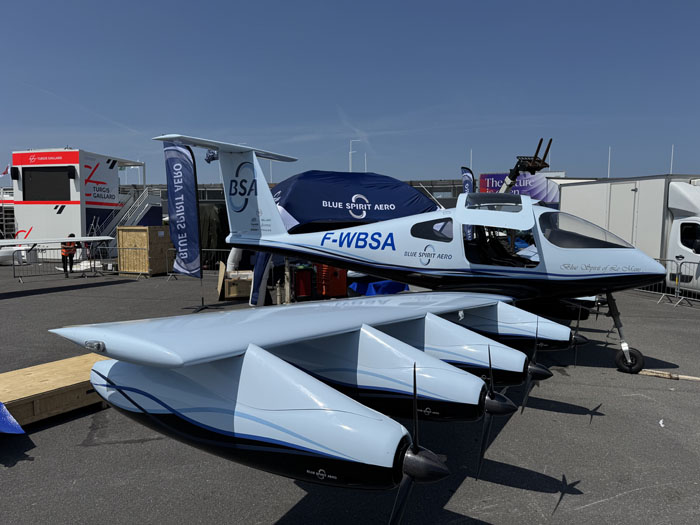Blue Spirit Aero's Hydrogen-Electric Dragonfly: Decarbonizing Pilot Training Fleets
Key Ideas
- Blue Spirit Aero conducted taxiing tests with its hydrogen-electric Dragonfly, preparing for a flight with a second demonstrator in early 2026.
- The four-seater aircraft aims to help pilot training organizations decarbonize their fleet, featuring 12 propulsion pods and an innovative design.
- The Dragonfly's design includes four functional engines and eight dummy engines, with a focus on ease of refueling and swift power increases.
- The company promises impressive specifications such as a 144 mph cruise speed, a 437-mile range, and 820 lbs of payload, with a flight-test campaign planned for four to six months.
Blue Spirit Aero, a Toulouse-based startup, has successfully conducted taxiing tests with their light hydrogen-electric Dragonfly and is set to proceed with flight tests of a second demonstrator in the early months of 2026. The innovative four-seater aircraft is targeted at pilot training organizations looking to reduce their carbon footprint. The Dragonfly boasts 12 propulsion pods distributed on the wings, each equipped with a propeller, electric motor, fuel cell, and gaseous hydrogen tank. This design choice, keeping hydrogen outside the fuselage, is expected to simplify the certification process.
During a public demonstration at the Paris Air Show, the company showcased the ease of refueling the aircraft. The first prototype of the Dragonfly, which has four functional engines and eight dummy engines mimicking the final design, is currently undergoing ground trials at Le Mans Arnage Airport. The flight-test campaign, set to last between four to six months, will focus on assessing the supercapacitors that facilitate swift power increases to compensate for the fuel cell's inertia.
Blue Spirit Aero has ambitious performance targets for the Dragonfly, including a 144 mph cruise speed, a 437-mile range, and a payload capacity of 820 lbs. With a strong emphasis on innovation and environmental sustainability, the company is at the forefront of developing hydrogen-electric aircraft technology. The project represents a significant step towards reducing emissions in the aviation sector while maintaining operational efficiency and performance.
